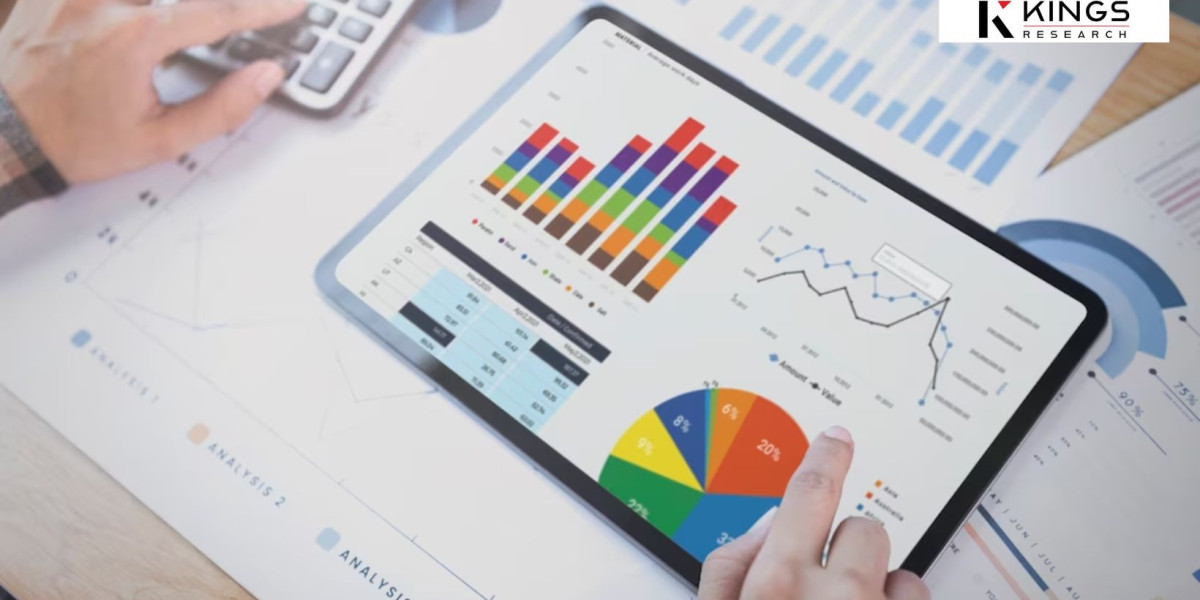In the rapidly evolving digital landscape, online B2B marketplace have become crucial hubs for global commerce, transforming how businesses interact, trade, and grow. These platforms have seen significant advancements, driven by technological innovations and shifting market demands.
The Rise of Online B2B Marketplaces
1. Digital Transformation and Its Impact on B2B Commerce
Digital transformation has been a major catalyst in the rise of online B2B marketplaces. As businesses increasingly embrace digital technologies, the B2B sector has seen a shift from traditional offline transactions to more efficient, data-driven online platforms.
Automation and Efficiency: Automation technologies, including AI and machine learning, are streamlining operations in B2B marketplaces. From automating order processing to managing inventory and logistics, these technologies are reducing manual errors and speeding up transactions. This shift towards automation allows businesses to operate more efficiently, reducing costs and improving customer satisfaction.
Data-Driven Decision Making: The digital nature of B2B marketplaces provides access to vast amounts of data. Businesses can leverage this data to gain insights into market trends, customer preferences, and supply chain dynamics. Advanced analytics tools allow for real-time monitoring and forecasting, enabling businesses to make informed decisions that drive growth and competitive advantage.
2. The Emergence of AI-Powered Marketplaces
Artificial intelligence is revolutionizing online B2B marketplaces, enhancing their functionality and offering new opportunities for businesses.
Personalization and Recommendations: AI-powered algorithms are transforming how products are presented to buyers. By analyzing user behavior and preferences, these algorithms provide personalized product recommendations, improving the buyer experience and increasing sales conversion rates. This level of personalization, once limited to B2C e-commerce, is now becoming standard in B2B environments.
Intelligent Sourcing: AI is also improving the sourcing process for businesses. Marketplaces are using AI to match buyers with the best suppliers based on criteria such as price, delivery time, and product quality. This intelligent matching reduces the time and effort required to find suitable suppliers, making the procurement process more efficient and effective.
Predictive Analytics: Predictive analytics, powered by AI, is helping businesses anticipate market changes and adjust their strategies accordingly. For example, businesses can use predictive models to forecast demand, optimize inventory levels, and prevent stockouts or overstocking. This capability is particularly valuable in industries with complex supply chains and fluctuating demand.
3. Sustainability and Ethical Practices in B2B Marketplaces
Sustainability has become a critical consideration for businesses and consumers alike, and B2B marketplaces are responding by integrating sustainable and ethical practices into their platforms.
Eco-Friendly Sourcing: Many B2B marketplaces now offer features that allow buyers to prioritize eco-friendly and sustainable products. This includes filters for products with environmental certifications, such as organic or fair trade, and information on suppliers’ sustainability practices. As more businesses commit to reducing their environmental impact, these features are becoming increasingly important.
Transparency and Traceability: Blockchain technology is being integrated into B2B marketplaces to enhance transparency and traceability in supply chains. Blockchain enables businesses to track the origin and journey of products, ensuring they meet ethical and sustainability standards. This transparency is not only crucial for compliance but also helps build trust with customers and partners.
Circular Economy Models: Some B2B marketplaces are adopting circular economy models, which focus on reducing waste and promoting the reuse and recycling of materials. By facilitating the trade of recycled or refurbished goods, these platforms are helping businesses minimize their environmental footprint and contribute to a more sustainable economy.
4. The Role of Blockchain in Enhancing Security and Trust
Blockchain technology is making waves in the B2B marketplace sector by offering new ways to enhance security, trust, and transparency.
Smart Contracts: Blockchain enables the use of smart contracts, which automatically execute and enforce the terms of an agreement when predefined conditions are met. This reduces the need for intermediaries and decreases the risk of fraud, making transactions more secure and efficient. Smart contracts are particularly valuable in complex B2B transactions involving multiple parties.
Secure Payments: Blockchain-based payment systems offer a secure and transparent way to handle transactions, reducing the risk of fraud and improving trust between buyers and sellers. These systems can also lower transaction fees and enable faster cross-border payments, making them attractive to businesses operating in multiple countries.
Supply Chain Verification: By providing an immutable record of transactions, blockchain ensures that all parties in a supply chain can verify the authenticity and provenance of goods. This is especially important in industries like pharmaceuticals and food, where product safety and authenticity are paramount. Blockchain’s ability to provide verifiable data helps prevent counterfeiting and ensures compliance with industry regulations.
5. The Shift Towards B2B Marketplaces-as-a-Service (MaaS)
As businesses seek more customized solutions, the concept of Marketplaces-as-a-Service (MaaS) is gaining traction. MaaS allows companies to create and manage their own B2B marketplaces using a white-label platform, offering greater control and flexibility.
Customization and Branding: With MaaS, businesses can tailor their marketplace to their specific needs, including branding, user interface design, and feature selection. This level of customization allows companies to create a marketplace that aligns with their brand identity and meets the unique needs of their target audience.
Scalability: MaaS platforms are designed to be highly scalable, allowing businesses to expand their marketplace as they grow. Whether it’s adding new product categories, integrating additional payment options, or expanding to new regions, MaaS provides the flexibility to adapt to changing business needs.
Integration with Existing Systems: One of the key benefits of MaaS is the ability to integrate the marketplace with a company’s existing systems, such as ERP, CRM, and supply chain management tools. This integration ensures a seamless flow of data across the organization, improving efficiency and enabling better decision-making.
6. Globalization and Localization Strategies in B2B Marketplaces
As online B2B marketplaces continue to expand globally, the need for effective globalization and localization strategies becomes increasingly important.
Localization of Content: To succeed in diverse markets, B2B marketplaces must offer localized content, including language translation, currency conversion, and region-specific product listings. This not only enhances the user experience but also improves search engine rankings in local markets, driving more traffic and sales.
Compliance with Local Regulations: Global B2B marketplaces must navigate a complex web of regulations, including trade laws, tax requirements, and data protection rules. Ensuring compliance with local regulations is essential for avoiding legal issues and building trust with users in different regions.
Cultural Adaptation: Beyond language and regulatory compliance, cultural adaptation is crucial for the success of global B2B marketplaces. This includes understanding local business practices, consumer behavior, and preferences. Marketplaces that can effectively adapt to different cultural contexts are more likely to succeed in international markets.
The Future Outlook for Online B2B Marketplaces
The future of online B2B marketplaces is shaped by continuous innovation and adaptation to the ever-changing business environment. Several trends are likely to define the next phase of development.
AI and Automation Will Drive Greater Efficiency: As AI and automation technologies continue to advance, their integration into B2B marketplaces will lead to even greater efficiency in operations. Businesses will benefit from more accurate demand forecasting, automated supply chain management, and personalized customer experiences, driving growth and profitability.
Sustainability Will Become a Competitive Advantage: As sustainability becomes a top priority for businesses worldwide, B2B marketplaces that offer eco-friendly solutions and transparent supply chains will gain a competitive edge. Companies that prioritize sustainability in their marketplace offerings will attract more customers and partners, leading to long-term success.
Blockchain Will Revolutionize Trust and Security: Blockchain technology is poised to become a standard feature in B2B marketplaces, providing unparalleled security, transparency, and efficiency. As more businesses adopt blockchain, we can expect to see a significant reduction in fraud, faster transaction times, and greater trust between buyers and sellers.
MaaS Will Empower Businesses with Customized Solutions: The rise of Marketplaces-as-a-Service will empower businesses to create highly customized, branded marketplaces that cater to their specific needs. This trend will lead to the proliferation of niche marketplaces, offering specialized products and services that meet the unique demands of various industries.
Globalization Will Require Sophisticated Localization Strategies: As B2B marketplaces continue to expand globally, successful platforms will need to implement sophisticated localization strategies that address language, culture, and regulatory differences. Marketplaces that can effectively navigate the complexities of global expansion will be well-positioned to dominate in the international arena.
Conclusion: Embracing the Future of Online B2B Marketplaces
Online B2B marketplaces are at the forefront of digital transformation, reshaping how businesses connect, trade, and grow. As these platforms continue to evolve, they will play an increasingly important role in the global economy, offering new opportunities for businesses of all sizes. By staying ahead of the latest trends and embracing innovative technologies, businesses can leverage B2B marketplaces to drive their success in the digital age.



